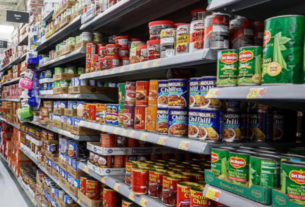The United Nations has warned that humanitarian operations in the Democratic Republic of Congo are suffering due to a U.S. aid freeze under President Trump’s administration. The funding cut has affected programs that provide food, medical care, and shelter for millions in crisis. Aid groups say the freeze has made an already dire situation worse.
“People are struggling to survive, and resources are running out,” said a UN official overseeing relief efforts. The aid suspension has led to food shortages in displacement camps across the country.
Congo has faced decades of conflict, leading to widespread hunger and displacement. More than 25 million people need humanitarian assistance, according to UN estimates.
The U.S. was one of the largest donors to humanitarian efforts in Congo. The aid cuts have affected programs run by the World Food Programme, UNICEF, and other relief agencies. Many of these programs provided emergency food rations to families in conflict zones.
“We have been forced to reduce food distributions,” said a spokesperson for the World Food Programme. Some families now receive smaller portions, while others have been cut off entirely.
Medical aid has also been impacted, with clinics running out of essential supplies. Doctors in remote areas report shortages of antibiotics and vaccines. Some patients with treatable conditions are being turned away due to a lack of resources.
Congo’s health system was already under strain before the aid freeze. Outbreaks of diseases such as malaria and measles have worsened due to reduced medical assistance. Some areas no longer have functioning health facilities.
UN officials say the aid freeze could lead to a humanitarian disaster. Without immediate action, they warn that malnutrition rates will rise. Some communities already report an increase in child deaths due to hunger.
The U.S. government has defended the decision, saying it is reassessing how aid is distributed. Officials argue that funding should go to countries that align with U.S. interests. Critics say the cuts have harmed innocent civilians.
“Humanitarian aid should not be political,” said an official from a leading aid organization. Relief workers argue that people in need should not suffer because of foreign policy decisions. Many have called for the aid to be restored immediately.
The UN has urged other countries to step in and fill the funding gap. Some governments and private donors have pledged support, but the contributions are not enough. Aid groups are struggling to maintain basic services with limited resources.
More than five million people are displaced in Congo due to ongoing violence. Many live in overcrowded camps with little access to food, clean water, or healthcare. The aid freeze has made their situation even more desperate.
Local charities are trying to provide assistance, but they lack the funding and infrastructure to replace large-scale UN programs. Some community leaders have organized food drives, but supplies remain scarce. Many people are going days without eating.
The situation is especially dangerous for children, who are at higher risk of malnutrition. Aid workers say that without urgent intervention, child mortality rates could increase.
Efforts to restart U.S. funding have faced political challenges. Some lawmakers in Washington have pushed for a review of the aid freeze. Others support the policy as part of broader foreign aid reforms.
The UN continues to pressure the U.S. to lift the restrictions on humanitarian aid. Officials warn that without action, more lives will be lost. Aid organizations say they are preparing for the crisis to worsen in the coming months.
Some international organizations have called for emergency meetings to address the situation. Discussions are ongoing about alternative funding sources. The humanitarian community is looking for long-term solutions to prevent further disruptions.
For millions in Congo, the future remains uncertain. Without food and medical assistance, survival is becoming more difficult. Aid workers say immediate action is needed to prevent further suffering.
The impact of the U.S. aid freeze is being felt across multiple regions in Congo. Many families have already lost their only source of food and healthcare. The UN and humanitarian groups continue to push for solutions before the crisis deepens.




